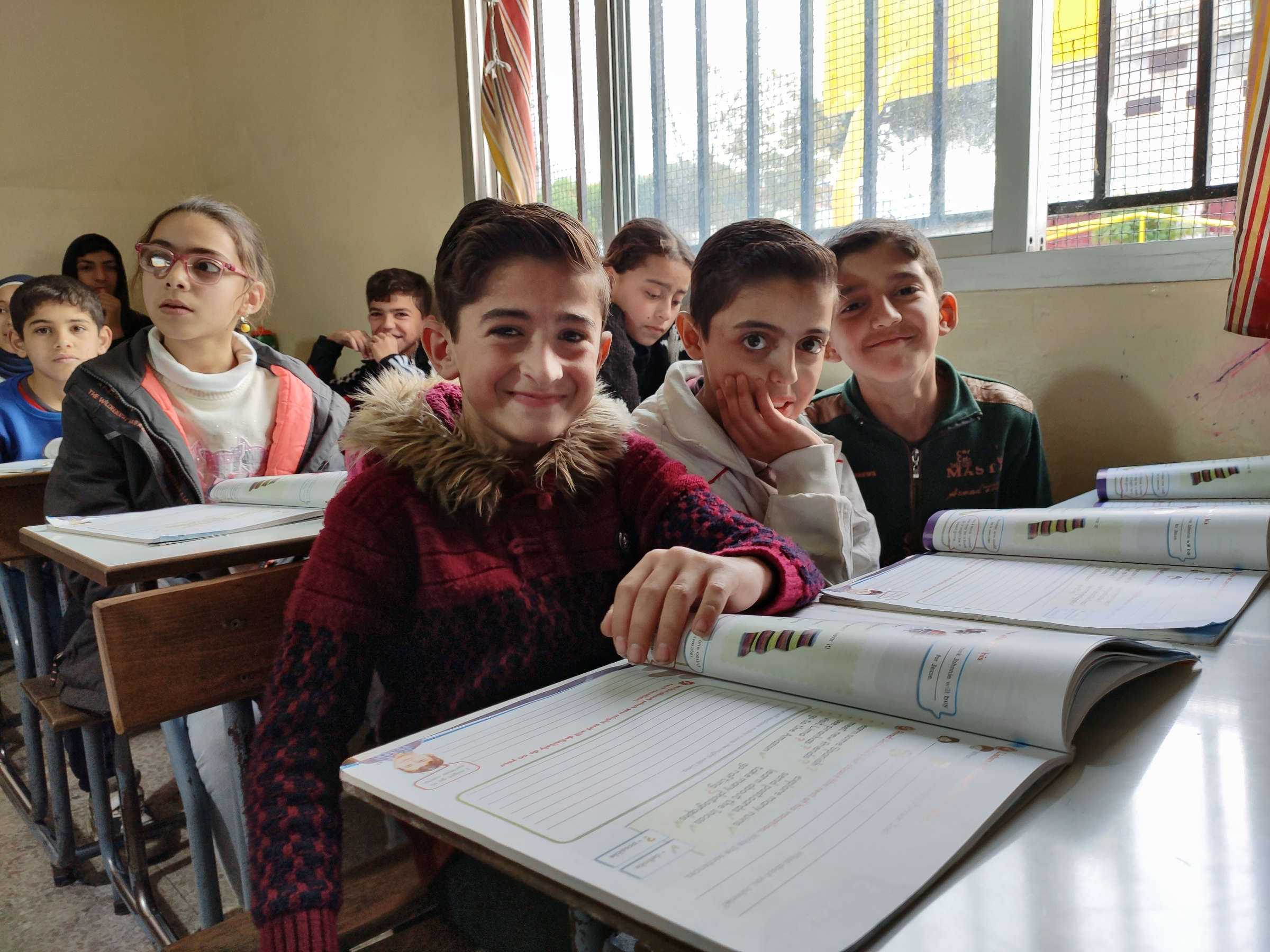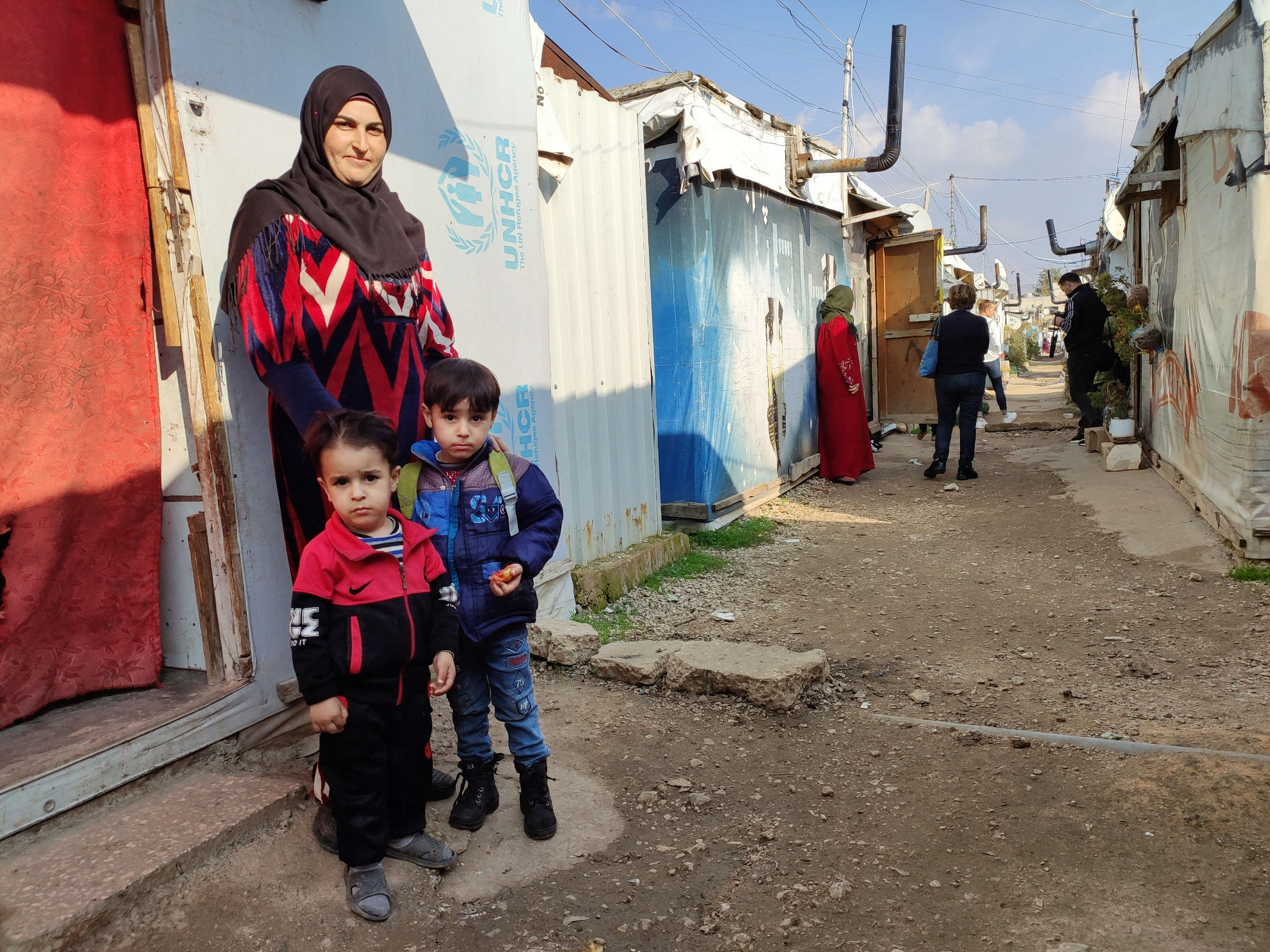Maysaa Said Al-Hammadi and her family came out of the frying pan into the fire. Five years ago, she fled the war in her home country Syria to the supposedly safe neighbouring country Lebanon. But only a few months after her arrival, a fire destroyed the entire refugee camp. Two of her then four children died in the fire. And the family's living conditions have continued to deteriorate in other ways as well. Due to the economic crisis, her husband, who has to support the family as a day labourer, can hardly find work. At the same time, financial support from the United Nations is decreasing and prices are rising more and more due to galloping inflation. "Since losing my children, I have no more dreams," Maysaa told us in conversation. "My only dream now is to live and raise my children."
Crisis exacerbates situation for refugees
Many of the estimated 1.5 million refugees from Syria seeking protection in Lebanon are in a similarly difficult situation. No other country has taken in as many refugees per capita as the small state on the Mediterranean with its previously approximately 4.5 million inhabitants. While in the first years of the war in the neighbouring country there was still a great sense of solidarity and many Lebanese donated through local aid organisations, support for the Syrian refugees is now decreasing more and more. Many Lebanese families are themselves threatened by poverty, hunger and disease since the economic crisis that began in 2019, the effects of the COVID-19 pandemic and the collapse of state structures. In many places, electricity is only available for a few hours, if at all, and diseases such as cholera are spreading due to the collapsing water supply.
Children particularly at risk
Especially the children suffer from the difficult situation. Many of the refugee children cannot go to school because they have to support their families. In addition, transport and learning materials are too expensive for the families or there are simply not enough places available because the school system is overloaded. Of the more than 500,000 registered refugee boys and girls, 30 per cent have never been to school, according to the UNHCR. And the situation is also becoming increasingly difficult for Lebanese children, as many schools are increasingly unable to cover operating costs or teachers are on strike due to wages that are far too low
Hope thanks to arche noVa project
Maysaa and her family in the al Homsus refugee camp remain a glimmer of hope, at least in this respect. Thanks to our education project in the Bekaa Plain in eastern Lebanon, her children continue to have a perspective. Together with our local partner Society for Social Support and Education (SSSE), we enable around 1,200 Syrian refugee children to attend school and extracurricular activities such as choir projects, excursions or psychological support in three schools. Lebanese families also benefit from the project, for example through the construction of playgrounds and WASH infrastructure.
In addition to donations, the education project in Lebanon is financially supported by the Free State of Saxony and the Federal Ministry for Economic Cooperation and Development (BMZ).














